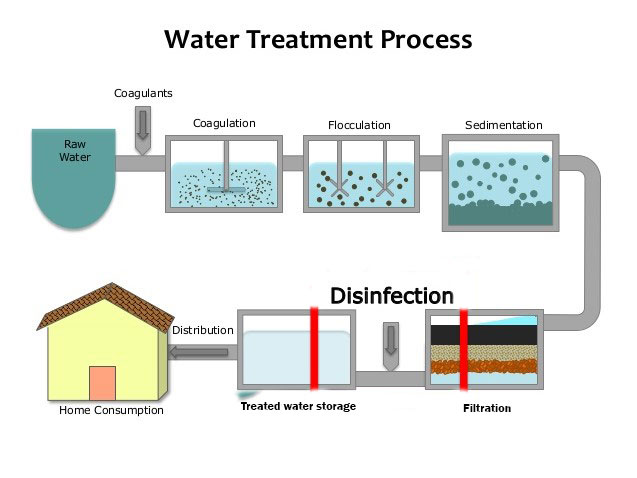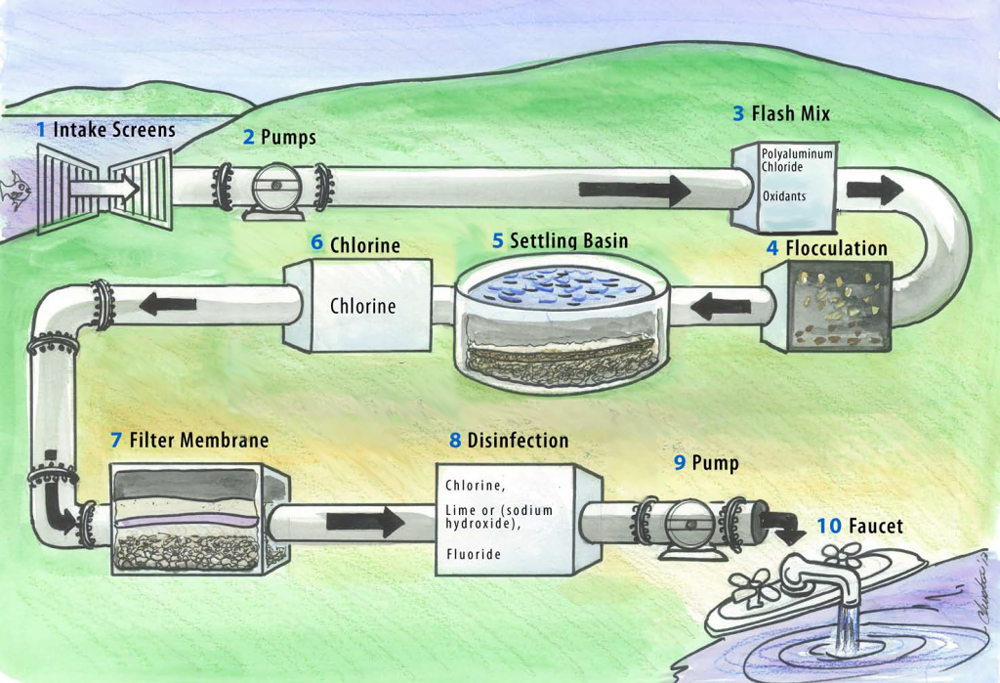Uncovering the Benefits of Buying Water Technology Startups for a Greener Future
Buying water Technology startups offers a calculated opportunity in the middle of escalating worldwide water shortage. These endeavors are establishing ingenious solutions that address important ecological difficulties. As need for sustainable water monitoring grows, investors might discover both monetary gains and an opportunity to add to public health and wellness. Comprehending the nuances of this market could reveal paths to impactful investments. What factors should financiers take into consideration to make the most of both their returns and their positive influence?

The Growing Demand for Lasting Water Solutions
The increasing worldwide population and shifting climate patterns have actually led to a considerable surge in the need for lasting water options. As urban centers expand and farming demands expand, obstacles connected to water shortage and quality have come to be extra noticable. Neighborhoods are encountering the dual stress of making certain sufficient water system while additionally attending to environmental problems such as pollution and over-extraction of resources.
Companies and governments are significantly acknowledging the need for ingenious techniques to water administration, concentrating on sustainability as a core principle. This has triggered investments in campaigns that advertise water preservation, reusing, and efficient distribution systems. Furthermore, public awareness around the significance of securing water resources has expanded, driving customer choices towards lasting practices. This developing landscape provides numerous possibilities for startups that can provide reliable, scalable options to meet the immediate worldwide demand for lasting and trusted water monitoring.
Dependable Ingenious Technologies Reshaping Water Monitoring

Expert system is likewise playing a vital duty, forecasting water demand patterns and recognizing leaks in city framework. In enhancement, decentralized water therapy systems empower neighborhoods to manage their very own sources sustainably. These modern technologies not just guarantee to improve performance and decrease costs but additionally contribute substantially to environmental conservation initiatives. By adopting these ingenious options, societies can move in the direction of more sustainable water monitoring practices, ensuring the accessibility of this valuable source for future generations.
Financial Potential in the Water Technology Market
While worldwide water scarcity heightens, the economic potential in the water Technology market is acquiring significant attention from financiers. With an increasing need for lasting remedies, the sector offers profitable chances across different sections, consisting of water filtration, desalination, and effective watering systems. Experts predict increased development, approximating the market could reach billions in revenue within the following years.
Financier passion is more fueled by governmental support and worldwide efforts targeted at taking on water-related difficulties. Water Technology Startups. Endeavor capitalists are increasingly targeting startups that introduce in water monitoring technologies, acknowledging the dual capacity for revenue and societal impact. As standard markets evolve, the water tech market is poised to draw in diverse funding resources, from exclusive equity to public investments

Environmental Effect and Social Obligation
Capitalists significantly recognize the ecological influence and social obligation connected with water Technology start-ups. These ventures play a vital role in dealing with pressing global water issues, such as deficiency, air pollution, and ineffective use. By establishing innovative remedies, such as sophisticated filtering systems and lasting water administration practices, these start-ups add to cleaner water access and enhanced resource conservation.
The social obligation facet of these investments is substantial; several water Technology startups concentrate on underserved communities, offering important resources that improve public health and wellness and quality of life. Capitalists are motivated not just by possible economic returns but likewise by the desire to promote sustainable practices and support neighborhoods in requirement. This double emphasis on ecological and social results aligns with more comprehensive patterns in moral investing, making water Technology start-ups attractive alternatives for those seeking to make a positive difference while also generating financial worth.
Methods for Recognizing Promising Water Startups
How can one properly determine appealing water start-ups in a quickly progressing market? Financiers should start by examining market fads and technical developments within the water industry. Carrying out complete research study on emerging technologies, such as water purification technologies and smart watering systems, can highlight startups positioned for development. Involving with sector professionals and going to relevant meetings offers useful insights into which companies are obtaining grip.
Furthermore, reviewing a startup's company design and scalability is necessary. Capitalists should check out the team's competence, item practicality, and consumer comments to analyze potential success. Monitoring financing rounds and collaborations can additionally suggest a start-up's market placement and financier confidence. Finally, leveraging networks within the sustainability and venture capital communities fosters links that disclose appealing chances. By using these approaches, capitalists can efficiently browse the competitive landscape of water Technology start-ups.
Frequently Asked Questions
What Are the Key Threats Related To Spending in Water Technology Startups?
Key threats related to spending in water Technology startups include governing challenges, market competitors, technological feasibility, financial instability, and possible environmental influences. These elements can substantially affect the start-up's success and roi.
Exactly How Can Individual Investors Take Part In Water Technology Investments?
Specific investors can join water Technology investments by joining crowdfunding systems, purchasing shares in openly traded business, or buying venture capital funds concentrated on sustainable water services, thereby supporting innovation in the industry. - Water Technology Startups
What Regulative Obstacles Do Water Technology Startups Face?
Water Technology startups typically experience governing challenges such as compliance with environmental requirements, securing licenses, steering with complicated regulations, and encountering lengthy authorization procedures, which can impede development and delay item release on the market.
Exactly How Do Water Start-ups Gauge Their Ecological Influence?
Water startups determine their ecological influence through metrics such as water cost savings, pollution reduction, and energy effectiveness. They often use life process assessments and monitoring innovations to measure and report their payments to sustainability initiatives.
What Duty Do Partnerships Play in the Success of Water Technology Startups?
Collaborations substantially boost the success of water tech start-ups by supplying access to sources, competence, and networks. Collaborations with established firms and study establishments can speed up development, boost market reach, and foster lasting development.
Spending in water Technology startups offers a critical opportunity among escalating worldwide water scarcity. As international water management encounters unprecedented difficulties, cutting-edge modern technologies are arising to change exactly how water sources are used and preserved. Advanced data analytics and IoT tools are enhancing water surveillance systems, permitting for real-time monitoring of water high quality and use. While worldwide water shortage escalates, the monetary potential in the water Technology market is check here gaining substantial attention from investors. Water startups measure their ecological effect with metrics such as water savings, air pollution reduction, and energy efficiency.